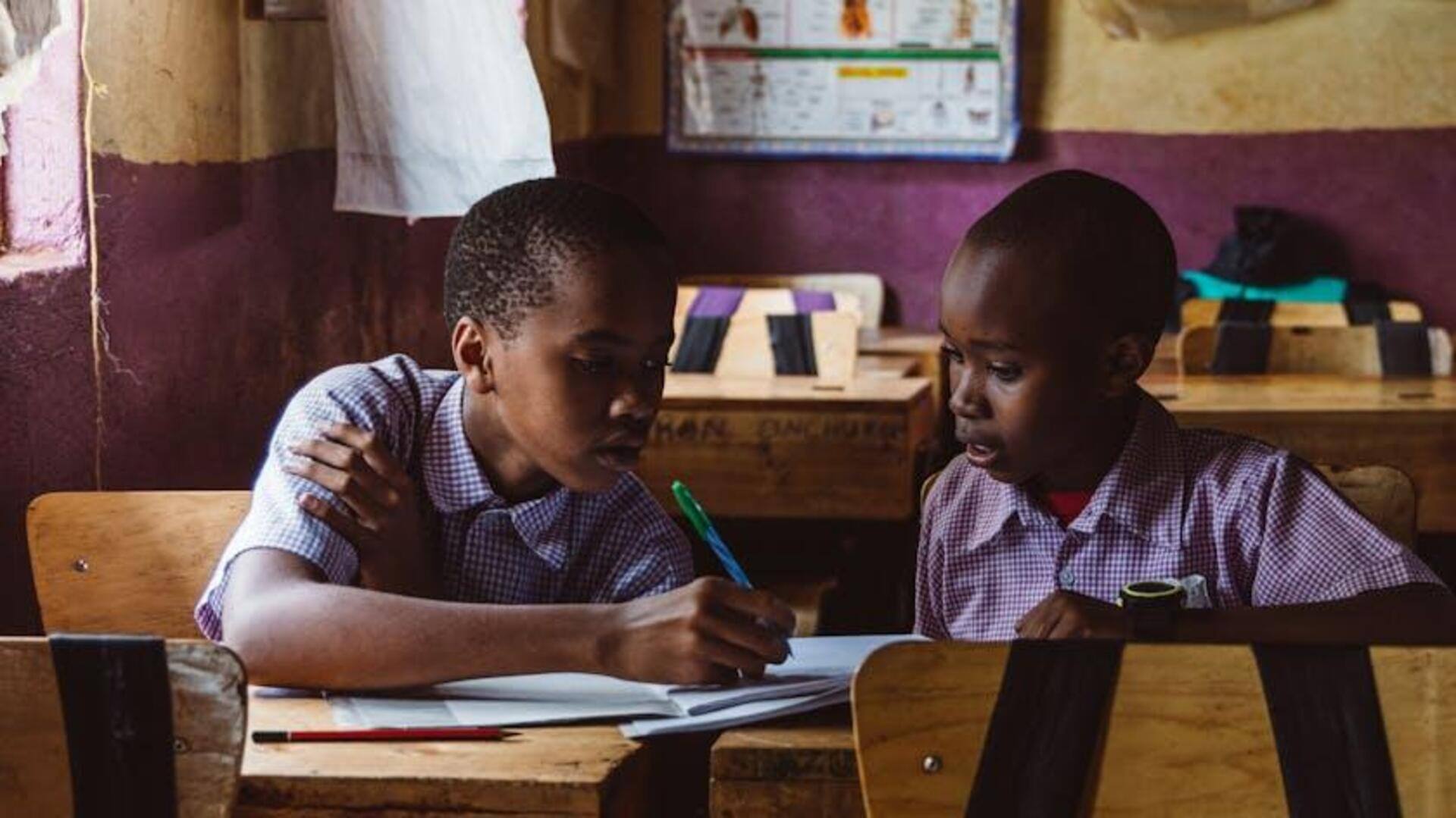
Here are smart tutoring hacks for students in Africa
What's the story
Education is the key to development, but many African students struggle to access quality tutoring due to high costs.
This article explores affordable, low-cost tutoring strategies that can make a big difference for students across Africa.
By using resources wisely and adopting creative approaches, teachers and parents can provide effective educational support without breaking the bank.
Peer learning
Peer tutoring programs
Peer tutoring is a cost-effective method of learning where students teach each other under supervision.
This approach not only reinforces academic concepts for learners but also builds their teaching and interpersonal skills.
Schools or communities can facilitate peer tutoring without the need for hiring external tutors, saving significant costs.
It creates a collaborative learning environment where students gain insights from their peers' perspectives.
Digital learning
Utilizing free online resources
The internet is overflowing with free educational resources, including tutorials, e-books, and even interactive lessons.
Established platforms like Khan Academy provide complete courses for free.
Motivating students to utilize these resources for self-study or supplementing traditional lessons with online materials can significantly improve subject comprehension without any extra financial investment.
Teachers and parents should assist students in choosing suitable and trustworthy online resources to guarantee productive learning experiences.
Community support
Community libraries as learning hubs
Community libraries are essential hubs, providing free access to books, magazines, and even internet.
They allow students to study individually or in groups organized by the library itself, without any financial burden.
Plus, libraries frequently offer workshops or talks, further enriching students' education beyond what they learn in school.
This approach not only supports academic development but also encourages community participation.
Radio learning
Educational radio programs
In areas where internet is either not available or too costly, educational radio programs offer a lifeline for continued learning.
Many African nations have implemented successful radio learning programs that follow their national curriculum.
These programs are not just one-way lectures. They are interactive, allowing listeners to participate by asking questions via phone calls or text messages during the live broadcasts.
Collaborative effort
School-community partnerships
Creating collaborations between schools and local businesses or non-profit organizations can pave the way for sponsored educational programs or workshops led by professionals in various fields.
Such partnerships not only offer students valuable insights into potential career paths but also expose them to the practical applications of their classroom learning in the real world, and that too at a very low cost.